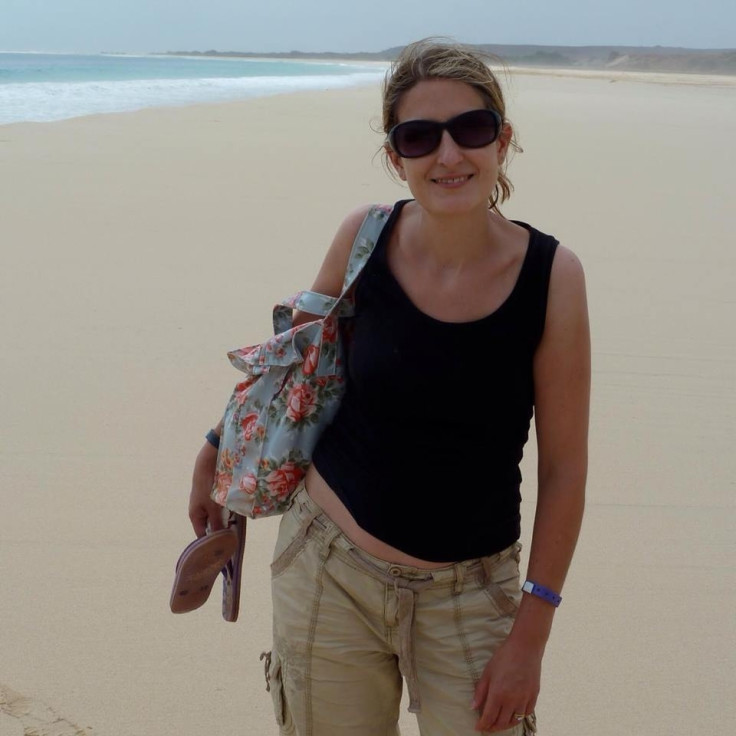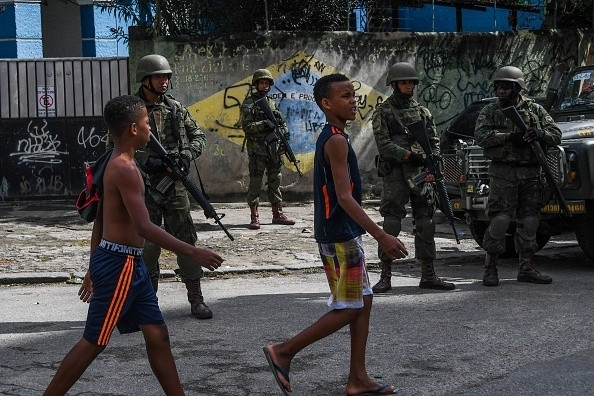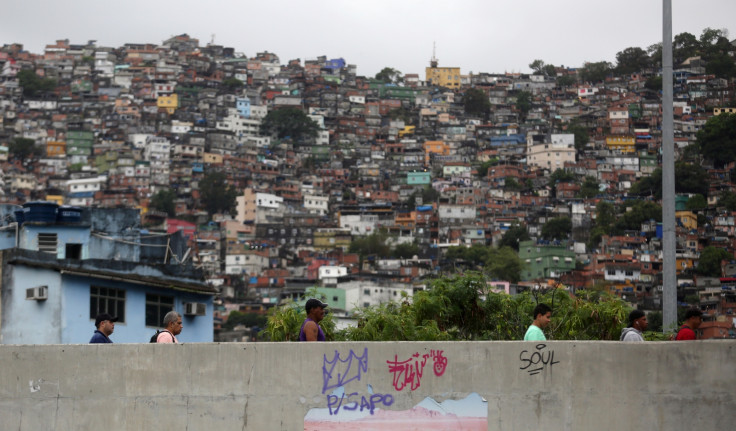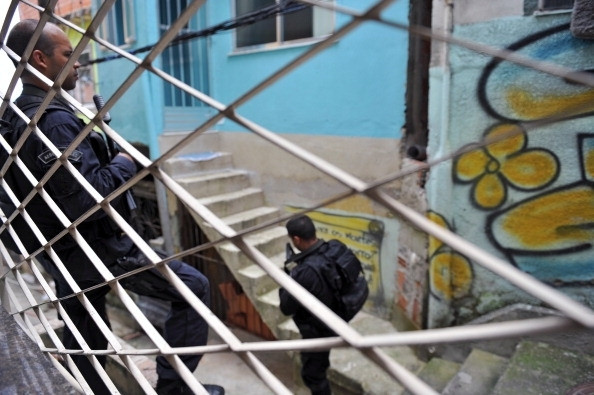Were Pentecostal gangsters behind British woman's shooting in Rio favela?
The Pure Third Command dominate Rio's slums - they also happen to be devoted Pentecostals.

A local gang in Brazil is making headlines worldwide after it was alleged that its members could be behind the shooting of a British woman while she was on holiday with her family.
The victim, identified as 46-year-old Eloise Dixon, was hit twice in the abdomen when the car she and her family were travelling in was fired upon. Her husband and three children were not injured.
It is believed the incident occurred as the car approached the entrance of a favela, or slum.
As the family was looking for water to buy, they were directed to the Água Santa community, an area where traffickers from the Terceiro Comando Puro, Pure Third Command, operate, local media reported.
At least two armed men told the family to get out of the car, but due to a language barriers, the family failed to do so and the men started shooting.
Police are investigating the incident, the two men are believed to be still on the run.
What is the Terceiro Comando Puro?

Terceiro Comando Puro (TPC) is a criminal organisation operating in Rio de Janeiro, based mainly in the north and west areas of the city.
It is believed it split from the Red Command prison gang in the 1980s and is regarded as the third most powerful street gang in Rio, according to the Insight Crime foundation. It is not clear how many members are part of the group.
The gang was regarded as a minor faction of the now defunct Third Command group until 2002, when some members broke away to form TPC.
It is believed the gang is not hierarchical and is more of a horizontal organisation with local bosses, some of whom are among Brazil's most wanted criminals.
Fernando Gomes de Freitas, also known as "Fernandinho Guarabu", is today one of the most prominent leaders of the gang. In 2007, police estimated he was making at least $300m a month from drugs, according to the New Yorker.
A fugitive who has evaded several capture attempts, Fernandinho has been described by the police as "the boss of Morro do Dendê/Ilha do Governador, armed and dangerous, capable of killing anyone who doesn't agree with him or who disobeys his orders."
One of the group's majour strongholds is Ilha do Governador, the largest island in Rio's Guanabara Bay.
Rios' two other majour gangs, Rio de Janeiro, Amigos dos Amigos and the Red Command are TPC's bitter rivals. The groups dominate the drug scene and extortion rackets in Rio.
"As with their rivals, the TCP's main allies are corrupt authorities among the police force, who largely turn a blind eye to their activity in exchange for kickbacks, and occasionally supply them with weapons," Insight Crime said.
Religion

Members of the group adhere to Pentecostalism, a branch of Protestant Christianity widespread in Latin America. In this religion, the Holy Spirit plays a prominent role.
"One of the gang's top commanders converted to Pentecostalism a decade ago and for a while the gang apparently became less violent," Andrew Chesnut, professor of religious studies at Virginia Commonwealth University and author of a book on Santa Muerte, told IBTimes UK.
He explained that many gang members convert to this religion in prisons, but there is no concrete evidence that suggest criminals cease their illicit activities due to their new faith.
"In fact, alliances with pastors in the favelas are part of their strategy of controlling favelas under their command. Pentecostal gangsters in Brazil access Pentecostalism for spiritual and material power while ignoring its ethical code," Chesnut continued.
This seems to be the case with Fernandinho who, according to the New Yorker, discovered religion in 2007.
"What had happened was that Fernandinho had become friendly with Pastor Sidney, and had been born again. He took to his new faith with great enthusiasm. He had 'Jesus Cristo' tattooed onto one of his forearms in big letters, and Morro do Dendê was soon covered with new religious graffiti," the site said.
"The community swimming pool he had built now had a sign above it saying 'this belongs to Jesus Christ.' Also, Fernandinho had supposedly ordered his men not to carry out 'violent' crimes, such as carjacking, armed robbery, and murder, although he was still selling drugs."
Chesnut explained TPC members engage in exorcism activities as they believe their lives are influenced by demonic possessions, particularly the spirits of Umbanda and Candomble.
Cults related to these two spirits are believed to have roots in Africa and have been repressed by TPC.
"As Pentecostals, they believe those African-derived religions to be satanic," Chesnut concluded.

© Copyright IBTimes 2024. All rights reserved.







